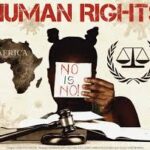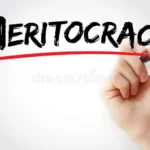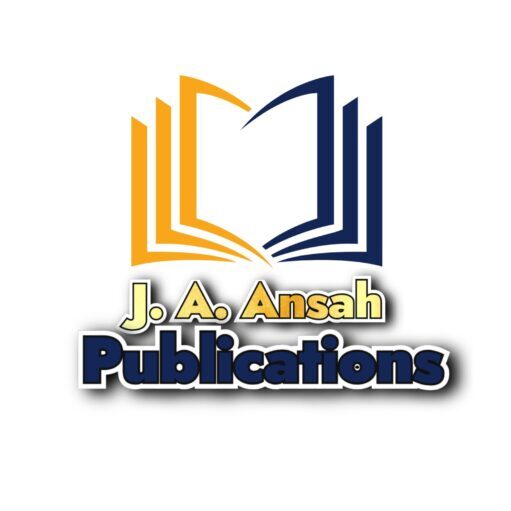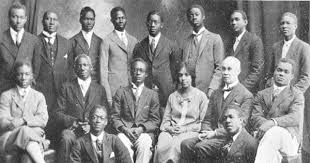Formation, development and fall
Know your past to live perfectly in the future
By Awuriki Simon
Introduction
The Aborigines’ Rights Protection Society (ARPS) was a pioneering organization in Ghana’s struggle for independence and land rights. Formed in 1897, ARPS aimed to protect the interests of the indigenous people of the Gold Coast (now Ghana) against colonial exploitation. This essay explores the history, objectives, and impact of ARPS in the pre-independence era.
Background
During the Scramble for Africa in the late 19th century, European powers, including Britain, partitioned the continent among themselves. Ghana, then known as the Gold Coast, became a British colony in 1844. The colonial administration introduced land laws favouring European interests, leading to widespread land expropriation and displacement of indigenous communities.
Formation and Objectives
In response to these injustices, a group of educated Ghanaian elites, including lawyers, chiefs, and merchants, formed the Aborigines’ Rights Protection Society on August 5, 1897. ARPS’ primary objectives were:
1. To protect the land rights of indigenous people
2. To promote the social, economic, and cultural welfare of Ghanaians
3. To challenge colonial policies detrimental to Ghanaian interests
Key Figures
Some notable figures played crucial roles in ARPS:
1. John Mensah Sarbah: A lawyer and ARPS’ first secretary, Sarbah was instrumental in drafting the society’s constitution.
2. Joseph W. S. de Graft-Johnson: A merchant and politician, de Graft-Johnson served as ARPS’ president.
3. A.B. Quartey-Papafio: A lawyer and ARPS member, Quartey-Papafio advocated for land reform.
Achievements
ARPS achieved significant milestones:
1. Land Reform: ARPS successfully lobbied for the passage of the 1897 Lands Bill, which recognized indigenous land ownership.
2. Colonial Policy Reforms: ARPS pressured the colonial administration to reform policies favoring European interests.
3. Education and Awareness: ARPS promoted education and awareness about land rights, empowering Ghanaians to assert their claims.
Challenges and Obstacles
Despite its successes, ARPS faced challenges:
1. Colonial Resistance: British authorities often resisted ARPS’ demands, viewing the organization as a threat to colonial control.
2. Funding Constraints: ARPS relied on donations and membership fees, limiting its resources.
3. Internal Conflicts: Personal and ideological differences among members hindered ARPS’ effectiveness.
Impact on Ghana’s Independence
ARPS played a pivotal role in Ghana’s independence struggle:
1. Nationalism: ARPS helped foster nationalism and anti-colonial sentiment among Ghanaians.
2. Political Activism: ARPS laid the groundwork for future political movements, including the United Gold Coast Convention (UGCC) and Kwame Nkrumah’s Convention People’s Party (CPP).
3. Constitutional Reforms: ARPS’ advocacy for land reform and self-governance influenced Ghana’s 1957 Independence Constitution.
Conclusion
The Aborigines’ Rights Protection Society was a pioneering organization in Ghana’s struggle for independence and land rights. Through its advocacy and activism, ARPS protected indigenous interests, promoted social welfare, and contributed to Ghana’s eventual independence. Today, ARPS’ legacy serves as a reminder of the importance of safeguarding indigenous rights and promoting self-determination.
Timeline of Key Events:
– 1897: Aborigines’ Rights Protection Society formed
– 1897: Lands Bill passed
– 1910s: ARPS’ influence wanes due to internal conflicts and funding constraints
– 1920s: UGCC and CPP emerge, building on ARPS’ legacy
– 1957: Ghana gains independence
Sources:
– “The Aborigines’ Rights Protection Society, 1897-1908” by Henry Mensah Sarbah
– “Ghana: The Struggle for Independence” by David Kimble
– “The Gold Coast and the Aborigines’ Rights Protection Society” by J.K. Agbeti
Would you like:
1. More information on Ghana’s independence struggle?
2. Details on ARPS’ constitution and structure?
3. Analysis of ARPS’ impact on modern Ghanaian politics?
- The Digital Dialects: How Programming Languages Shape Our Modern World

- The Dark Side of Human Rights: Freedom or a Gateway to Spiritual Corruption?

- The Myth of Meritocracy in Ghana: A Critical Examination

- The Role of the Church in Combating Corruption: The Church Cannot Remain Mute

- Changing the Script: How Applied Behaviour Analysis (ABA) Is Empowering Learners and Transforming Classrooms





Great piece; sources well acknowledged too. Thanks
Great piece, well a knowledged,God strengthen you
Thanks for your help, highly greatfull